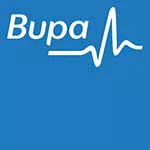Patient information
How to pay
The cost of your scan will depend on the type of examination we have been asked to perform. If you are covered by private medical insurance, please bring your membership details with you and contact your insurer to get authorisation for the scan beforehand. We are recognised by all major insurers and will liaise with the insurer on your behalf, enabling a painless billing process.
If you are self-funding, you will be given an indication of the cost of the scan before we start. If you are happy to proceed, we would ask that you settle your bill after your MRI scan so that results can be released without delay. We accept payment by credit or debit card, or cash. We regret that we can no longer accept cheques.
Insurers

03456090111
Claims Number (Corporate policies):
Please refer to your membership documents
Our unique Provider Number:
60006418

Claims Number (personal policies):
0800 132203
Claims Number (Corporate policies):
Please refer to your membership documents
Our unique Provider Number:
17931

Claims Number (personal policies):
0300 123 3200
Claims Number (Corporate policies):
Please refer to your membership documents
Our unique Provider Number:
10549330

Claims Number (personal policies):
0200 068 582
Claims Number (Corporate policies):
Please refer to your membership documents
Our unique Provider Number:
300200840

Claims Number (personal policies):
01475 753803
Claims Number (Corporate policies):
Please refer to your membership documents
Our unique Provider Number:
HX00017

Claims Number (personal policies):
0345 122 3100
Claims Number (Corporate policies):
Please refer to your membership documents
Our unique Provider Number:
49457

Claims Number (personal policies):
0845 602 3523
Claims Number (Corporate policies):
Please refer to your membership documents

Claims Number (personal policies):
0208 410 044
Claims Number (Corporate policies):
Please refer to your membership documents

Claims Number (personal policies):
0800 294 6796
Claims Number (Corporate policies):
Please refer to your membership documents

Claims Number (personal policies):
Please refer to your membership documents
Claims Number (Corporate policies):
Please refer to your membership documents
Frequently Asked Questions
Magnetic Resonance Imaging, or MRI, is a technique whereby a magnetic field is used to obtain high-quality images of the inside of the body. It is highly regarded for its ability to demonstrate soft tissues, particularly the brain, spinal cord, nerves and muscles.
MRI scans can vary in duration, depending on the area being scanned and the complexity of the imaging required to assist the referrer in answering the clinical questions. On average, an MRI scan of a single body area will take between 15 to 30 minutes. However, more complex scans can take 90 minutes or more. Our team will be able to give you an indication of how long your scan will take when you make a booking.
There is very little you need to do to prepare for an MRI scan with us. You can eat and drink normally before your appointment and you can take any medications you would normally take as normal.
If we need you to bring anything specific with you for your appointment we will let you know.
However, as a general rule, it is always useful if you could:
- Wear comfortable clothing with minimal attached metal (zips etc.) We may need you to change for your scan in which case we will provide you with a gown
- Avoid wearing eye makeup, especially if you are having your brain or eyes scanned.
- Avoid bringing any jewellery with you that you would not be happy to remove and leave in a locked room.
- Bring any previous scans that you might have copies of to your scan appointment. It is always useful if we can see old scans as these can be used for comparison.
Yes. There are no known side effects associated with having an MRI scan, and it does not use any ionising radiation (such as X-Rays). We always have to be cautious about the magnetic field and some patients who have certain metallic objects in their body are not suitable for MRI scanning. We use a detailed safety checklist to assess whether you are safe to have a scan of this kind.
Occasionally, we use an injection of contrast dye during an MRI scan which enhances the appearance of certain tissues and can add to the quality of the scan in specific circumstances. This injection is regarded as being very safe, although we will always check to make sure that there is no reason why this injection would be unsafe for a patient to have if necessary. The radiographer will explain this injection to you in more detail if it is necessary for your scan.
We do not scan female patients who are within the first trimester of pregnancy.
Your doctor has referred you for an MRI scan as they feel that this is the best option for you. Often, they will have referred to ‘best practice’ guidelines when deciding on the most appropriate imaging test to use. Alternatives may be available but may not provide the same level of information. If you would prefer not to have an MRI scan, you should discuss this with your doctor.
If you are claustrophobic, we recommend you contact us to discuss your concerns. You may also want to talk with your referring doctor or your GP who may prescribe medication to help you relax. We cannot prescribe this medication for you in the MRI department.
We are privileged to use the very latest in MRI technology which allows us to undertake scans which are at the forefront of modern medical imaging, including functional MRI (fMRI).
Across our two imaging centres in Central London, we operate two 3T magnets and one 1.5T magnet, which are each optimised to the type of specialist scanning we offer.
We do not operate an ‘Open’ MRI scanner but our magnets are some of the most modern available, and we find that claustrophobic patients can often tolerate scans in scanners. Two of our scanners are 'wide-bore' and are generally more comfortable for those patients who are nervous. Please get in touch if you are anxious and would like to know more.
CT stands for Computed Tomography. A CT scan is a series of pictures of your body, taken using x-rays. The picture show cross-sections or ‘slices’ of your body. When these slices are put together by a powerful computer, the scan shows a very detailed image of the inside of your body.
CT scans are generally quick, lasting only a few minutes on average. You may need to lie on the scanner table for longer so they we can set up equipment, and position you correctly for your scan. If you are having a procedure on the CT canner (e.g. a nerve root injection), this will take longer. Our team will be able to give you an indication of how long your procedure will take when you make a booking.
A CT scanner looks like a large doughnut, with an opening which is around 3 feet wide and only about 10 inches deep. You will be asked to lie down (typically on your back) on a motorised bed which then moves slowly into the opening and out the other side. As you pass through the scanner, x-rays are being taken. The x-ray machine sends thin beams of x-rays through your body, which are detected by sensors on the other side. The information then goes to a computer which produces a picture of the structures of the inside of your body.
You will need to lie very still during the scan to avoid blurring the images. You may even be asked to hold your breath for a moment. The Radiographer will leave the room for the scan, but you will be able to talk to them through an intercom, and they will be watching you through a glass window.
Sometimes, we may need to give you an injection of contrast dye during your scan. If you do receive dye during your scan, it may give you a metallic taste in your mouth and a ‘hot flush.’ Some people feel as though they want to pass water (wet themselves) – don’t worry, you won't, it just gives you that feeling. Each of these sensations pass in a couple of minutes. We have a separate information leaflet about contrast dye which we will share with you if it applies to your scan.
If you are taking medicines for diabetes, such as metformin, then these may need to be altered around the time of your scan. We will advise you at the time of booking your appointment if this is the case.
Sometimes we will advise you not to eat or drink before your scan. Conversely, we may occasionally need to ask you to drink a volume of water one hour before your scan and to avoid passing water until the scan is complete. We will advise you accordingly at the time of booking your appointment.
If you are taking any medicines, please continue to take these as usual unless you have been told otherwise by your doctor.
If you need to bring your children with you, please bring along an adult who can supervise them while your scan is underway. We are unable to offer childcare facilities.
As with a conventional x-ray, CT scans use radiation. The level of radiation used is minimal and your doctor will have assessed that the benefits of the scan would outweigh any risks. To put the radiation dose from a CT scan into perspective, a typical scan of the head will involve the same exposure a person would expect to receive from naturally occurring background radiation in 8 months. Radiation experts believe that the likely increase in the risk of cancer from imaging tests is minimal. However, we will only use radiation if there is a good reason, and we will always use the principle of making the dose as low as reasonably achievable.
The contrast dye that is sometimes used contains iodine which some people are allergic to. We will check whether you have any known allergies before your scan. Occasionally if you are having a contrast-enhanced CT, there is a small risk that the injection of contrast can leak out under the skin instead of in the vein. If this does happen, then further advice will be given to you by the Radiographer.
If you are, or think you could be, pregnant or have had an allergic reaction to x-ray contrast in the past, then you must tell your doctor or contact us using the contact details on this leaflet.
Your doctor has referred you for a CT scan as they feel that this is the best option for you. Often, they will have referred to ‘best practice’ guidelines when deciding on the most appropriate imaging test to use. Alternatives may be available but may not provide the same level of information. If you would prefer not to have a CT scan, you should discuss this with your doctor.
If you have been scanned as a private patients, you will be given access to a health portal, which allows you to access your scan images. You can use this portal to view, download or share your scan images with whoever you wish.
The results from your scan will not be given to you immediately. Your MRI/CT pictures will be studied by a radiologist, and the results will be sent to the doctor who referred you within 24 hours. They will discuss the results with you and any treatment you may need.
We are unable to provide patients with a copy of the radiology report without authorisation from the referrer. Please contact your referrer to obtain your results.
